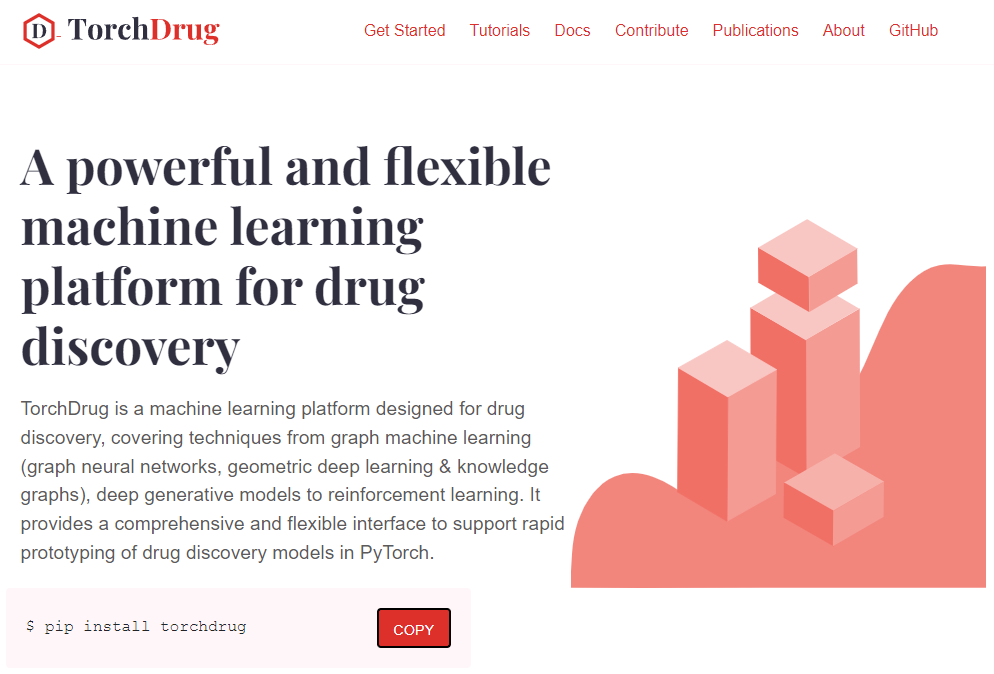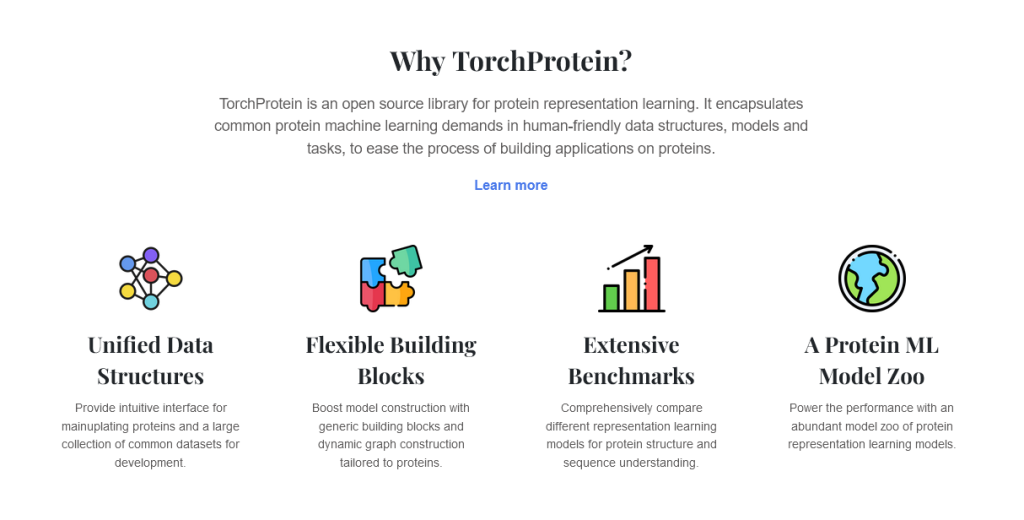Driving Protein Drug Development with Next Generation AI Technology
On September 21, 2022, BioGeometry announced the completion of its angel round financing from GaoRong Capital. The team has released TorchProtein, the first open source machine learning platform for macromolecule drug development, dedicated to accelerating the process of drug development through AI.
Top Graph Representation Learning Scientist Accelerates Drug Development with AI
Founded in 2021 by Dr. Jian Tang, an associate professor and tenured professor at Mila – Quebec AI Institute, Canada, BioGeometry is dedicated to developing next-generation AI technologies such as geometric deep learning and deep generative models for macromolecule drug discovery and development. The company receives support from Yoshua Bengio, a Turing Award winner and one of the three pioneers of deep learning, who will serve as a scientific advisor to the company.
The company is building two fundamental platforms for macromolecular drugs: AI-based design and high-throughput wet experiment verification that, when combined, yield ultra-fast, high-success-rate drug design through the closed-loop of dry and wet experiments.
The continuous improvement in computing power, coupled with the exponential growth of available high-throughput biological data, is bringing a new era of drug discovery and development for scientists. From molecules, proteins to medical knowledge graphs, through massive amounts of graph-structured data, AI is continuously reshaping the biopharmaceutical landscape .
The founder of BioGeometry, Prof. Jian Tang (唐建), is a graduate from the School of EECS at Peking University. He worked as a researcher at Microsoft Research Asia, and conducted postdoctoral research at Carnegie Mellon University and the University of Michigan. Prof. Tang is one of the first scholars in the world to apply deep learning to graph structured data, and has done lots of pioneering work in the field of graph representation learning.
At ICML’14, one of the three top machine learning conferences, he received the best paper award (the only one in China), and WWW’16, the top conference in data mining, he got the best paper nomination. His representative work in the field of graph representation learning, LINE, has been widely recognized with more than 4500 citations since its publishment in 2015. He has served as the area chair of ICML and NeurIPS (top conferences on machine learning) for many times, and has received many faculty research awards from companies including Amazon and Tencent.
As early as 2018, Prof. Tang Jian realized the killer application of graph representation learning might be in the field of biomedicine. He pioneered the application of graph representation learning and geometric deep learning to the field of drug research and development, and has carried out a lot of innovative research in the molecular property prediction and conformation generation. His team developed TorchDrug, the first open-source machine learning platform specifically for drug discovery, aiming to promote the accessibility of artificial intelligence algorithms in drug discovery. It has attracted extensive attention from both the academia and the industry.

AI design platform for macromolecular drug upon completion, with state-of-the-art antibody optimization and structure prediction performance
Currently, BioGeometry is in its final stages of constructing an AI design platform for macromolecular drugs. The company achieves state-of-the-art performance in tasks such as antibody structure prediction, optimization, sequence design and enzyme activity prediction.
The company’s high-throughput wet experiment validation platform is being built with partnerships from well-known universities and biomedical labs. The company aims to accelerate the drug development process by closing the loop of dry and wet experiments.
Meanwhile, BioGeometry has released TorchProtein, the first open-source machine learning platform for large molecule drug development, partnered by NVIDIA, Intel, IBM, etc. The platform presents a general deep learning framework for modeling macromolecules, the first pre-trained big model based on protein 3D geometry, and a standard benchmark dataset for deep learning on proteins.

The team has established collaborations with top-tier universities and renowned companies worldwide to advance the progress of artificial intelligence in drug discovery.
“We are currently at the intersection of AI and biotechnology revolution,” said Prof. Jian Tang. “On the one hand, geometric deep learning technologies (such as AlphaFold2) have made huge breakthroughs in molecular modeling; on the other hand, biotechnology, especially synthetic biology, enables reading and writing macromolecules in a rapid rate, creating a large amount of data for AI. The deep integration of the two revolutionary technologies opens up tremendous opportunities for biomolecular design.”
